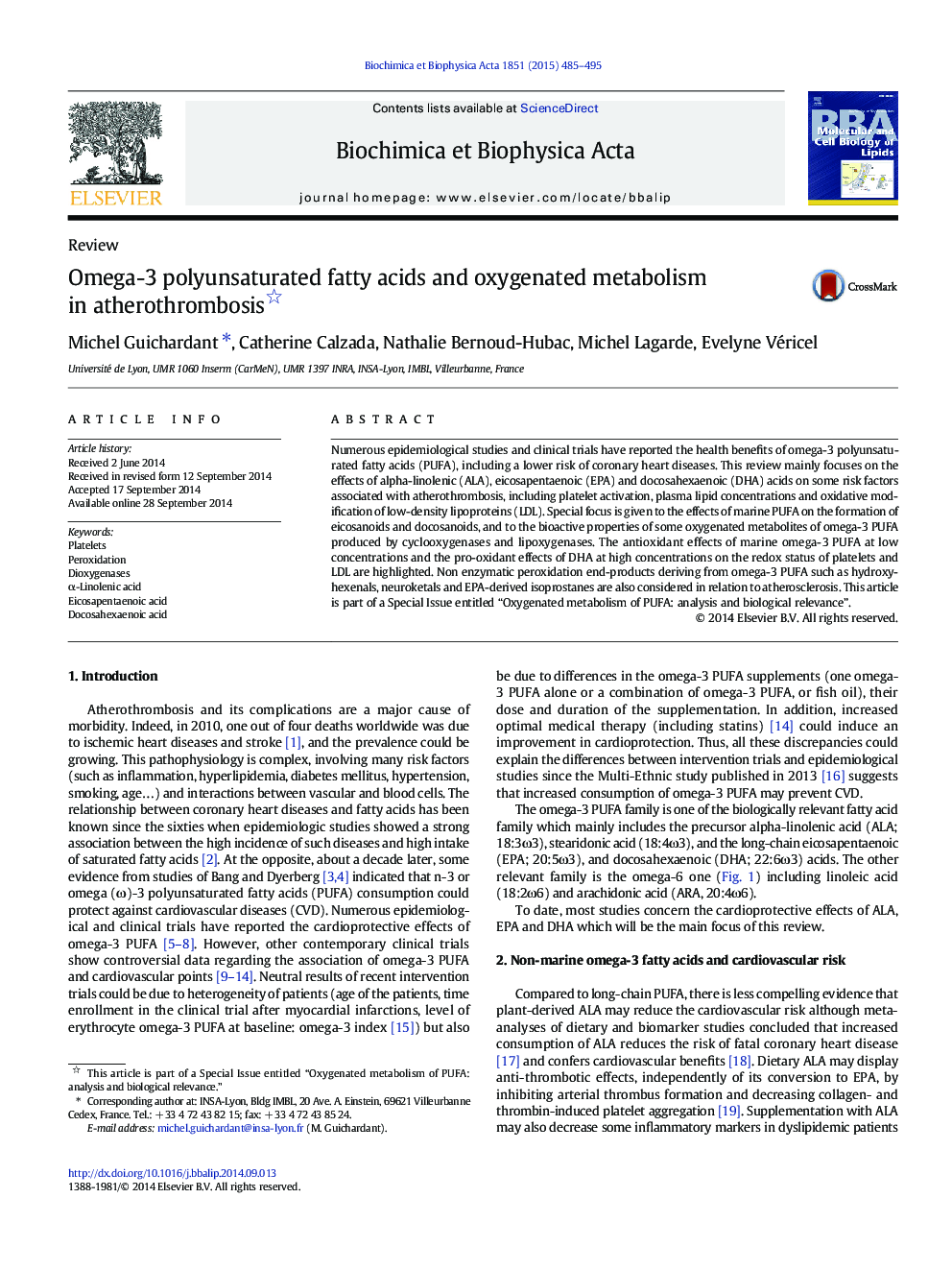| Article ID | Journal | Published Year | Pages | File Type |
|---|---|---|---|---|
| 1949136 | Biochimica et Biophysica Acta (BBA) - Molecular and Cell Biology of Lipids | 2015 | 11 Pages |
•Cardioprotective effects of ALA, EPA and DHA are discussed.•EPA and/or DHA may reduce platelet activation and thromboxane formation.•Improved redox status induced by low doses of EPA and/or DHA.•Oxygenated metabolites of marine PUFA may mediate cardioprotective effects.•Specific analytical issues regarding oxygenated metabolites are briefly reported.
Numerous epidemiological studies and clinical trials have reported the health benefits of omega-3 polyunsaturated fatty acids (PUFA), including a lower risk of coronary heart diseases. This review mainly focuses on the effects of alpha-linolenic (ALA), eicosapentaenoic (EPA) and docosahexaenoic (DHA) acids on some risk factors associated with atherothrombosis, including platelet activation, plasma lipid concentrations and oxidative modification of low-density lipoproteins (LDL). Special focus is given to the effects of marine PUFA on the formation of eicosanoids and docosanoids, and to the bioactive properties of some oxygenated metabolites of omega-3 PUFA produced by cyclooxygenases and lipoxygenases. The antioxidant effects of marine omega-3 PUFA at low concentrations and the pro-oxidant effects of DHA at high concentrations on the redox status of platelets and LDL are highlighted. Non enzymatic peroxidation end-products deriving from omega-3 PUFA such as hydroxy-hexenals, neuroketals and EPA-derived isoprostanes are also considered in relation to atherosclerosis. This article is part of a Special Issue entitled “Oxygenated metabolism of PUFA: analysis and biological relevance”.
